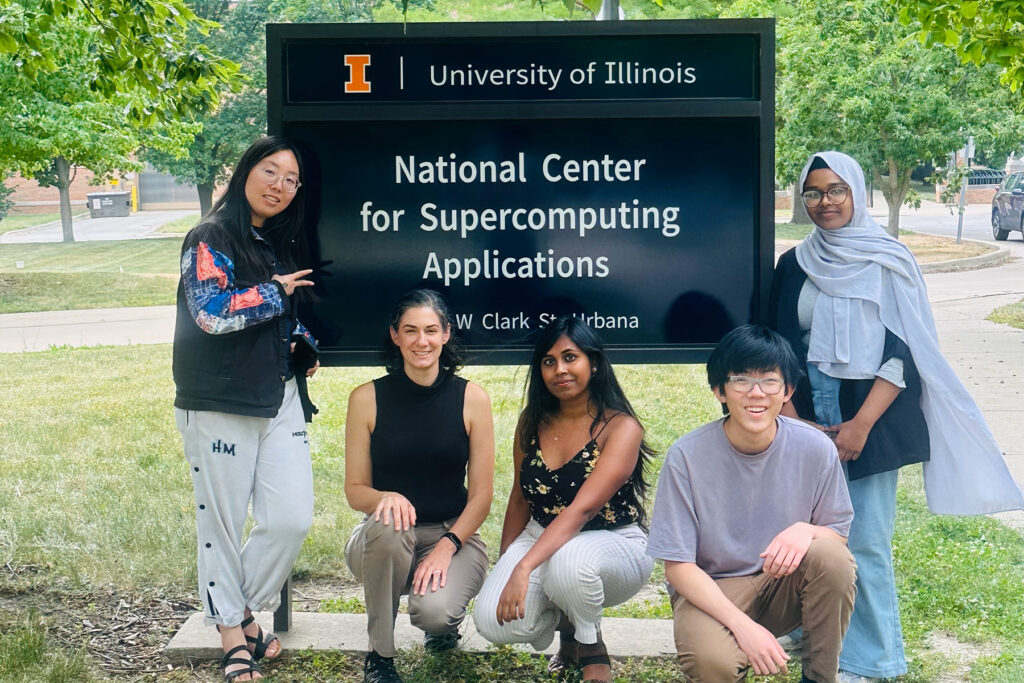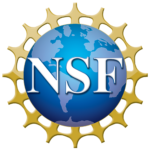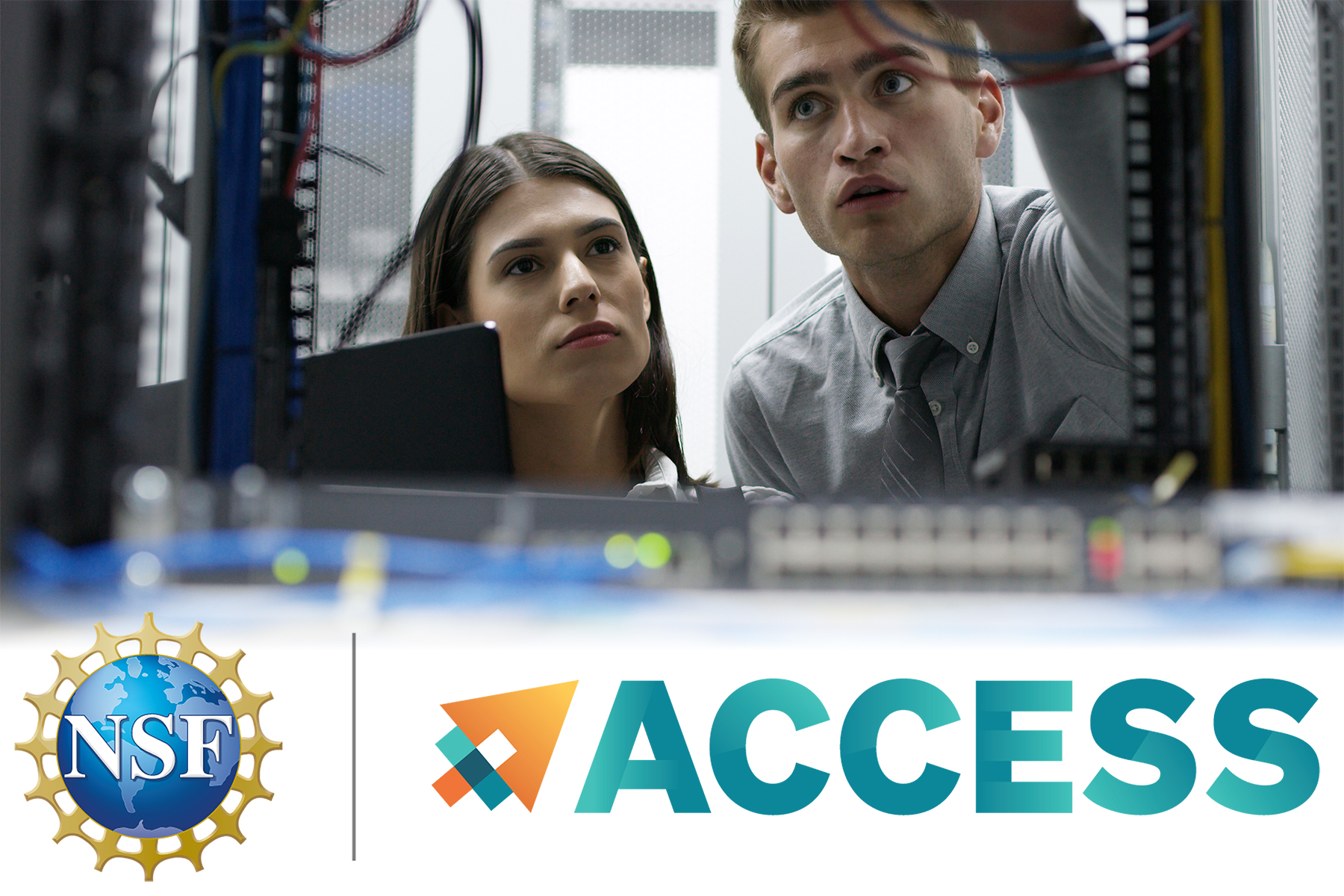Readers may already know about student opportunities within the ACCESS STEP student program, but there are other ways students can get hands-on experience with cyberinfrastructure support through the U.S. National Science Foundation program, ACCESS. The ACCESS Metrics team also hosts a number of REU students each year at the University of Buffalo’s Center for Computational Research (CCR). As the team readies to accept applications for the summer of 2024, we reached out to a couple of the students who finished up their internships last summer and asked them to share their experiences with the program.
The University of Buffalo (UB) has an ongoing intern program that provides students with advanced training in software engineering and computational science while employing them to work on a wide range of active research projects. Students not only gain valuable experience working in a state-of-the-art research environment as part of a team, often applying knowledge in their chosen fields, but also utilize new technologies, including advanced software engineering, modeling, machine-learning models, database design, parallel computing and user interface development. The end of the summer culminates with a short presentation by each student describing the research project they worked on and their role in it. Over 63 interns have been trained in this program and have gone on to successful careers in computer-related fields.
Lorraine A. Gao is currently studying computer science with a minor in mathematics at UB. She was excited when the opportunity arose to apply to the REU program with Metrics. Like many students who apply to these programs, she was acutely aware it could help with her professional career. “I applied for the ACCESS Metrics REU program because of my interest in software testing and the opportunity to work under a project mentor,” Gao said. “Learning and implementing advanced testing methodologies through modern technologies like Docker and CircleCI, under an expert, was an ideal scenario for developing my career.”

My mentor [Ryan Rathsam] played a crucial role in my development, providing guidance in both the technological aspects of the project and navigating the collaborative nature of a research environment. The hands-on experience and mentorship make this program a standout choice for students interested in furthering their skills in software engineering.
– Lorraine A. Gao, former ACCESS intern, University of Buffalo
Lorraine was assigned to a project on improving XDMoD testing and developer infrastructure. Gao said she learned a great deal while interning with the Metrics team. “The coolest thing I learned was the automation of Docker images with UI tests, including code coverage analysis,” Gao said. “This task was made more efficient and insightful with my mentor, Ryan’s guidance, which allowed us to create a streamlined pipeline ensuring that our code was ready for nightly runs.” When asked what her favorite part of the internship was, she answered with another interesting piece of the project she worked on. “My favorite thing I learned during my internship was successfully implementing CircleCI integration into our workflow and reducing the UI testing time when migrating existing tests from WebdriverIO to Playwright.”
Gao left the internship with a sense of accomplishment and expressed how useful she thought an opportunity like this would be to others. “I wholeheartedly recommend the ACCESS Metrics REU program to other students,” she said. “This is a wonderful opportunity to work under an experienced professional and learn the ropes of work while applying my gained knowledge from my education.”
Jyothismaria Joseph is also an undergraduate student pursuing a bachelor’s degree in computer science at the University of Buffalo. She couldn’t pass up the chance to get this kind of experience right on her campus. “I applied to this program to gain experience in research, and some of the listed projects and skill sets were of particular interest to me,” she said. She worked on a project titled “Nodes Availability Analysis for Application Kernels Execution.” The project focused on finding ways to schedule application kernels in the gaps between compute projects to proactively allow continuous performance monitoring to identify underperforming hardware and software.
Students looking for experience in cyberinfrastructure may also want to check out the STEP program. The application period for these programs opens soon. Go here for more information on STEP.

She spoke highly of the mentorship aspect of the program, just as Gao did. “Collaborating with my mentor on the project was the most enjoyable aspect of my internship,” she said. “The most exciting part of my learning experience was working with HPC and on a data analysis project based on those logs. Nikolay [Simakov] helped me through the whole process!”
Much like Gao, Joseph strongly recommends the program to anyone interested in cyberinfrastructure. “It’s a valuable program. The knowledge gained during the program has proven to be highly applicable, and I’ve successfully applied the acquired skill set in various classes and ongoing projects.”
Hands-on experience with cyberinfrastructure and mentorship and guidance from some of the most knowledgeable HPC professionals in the country aren’t easy to come by, but with ACCESS, students can find both in these unique programs. If you’re a student interested in interning with ACCESS, you can check out BU’s REU program here and the STEP program here.


